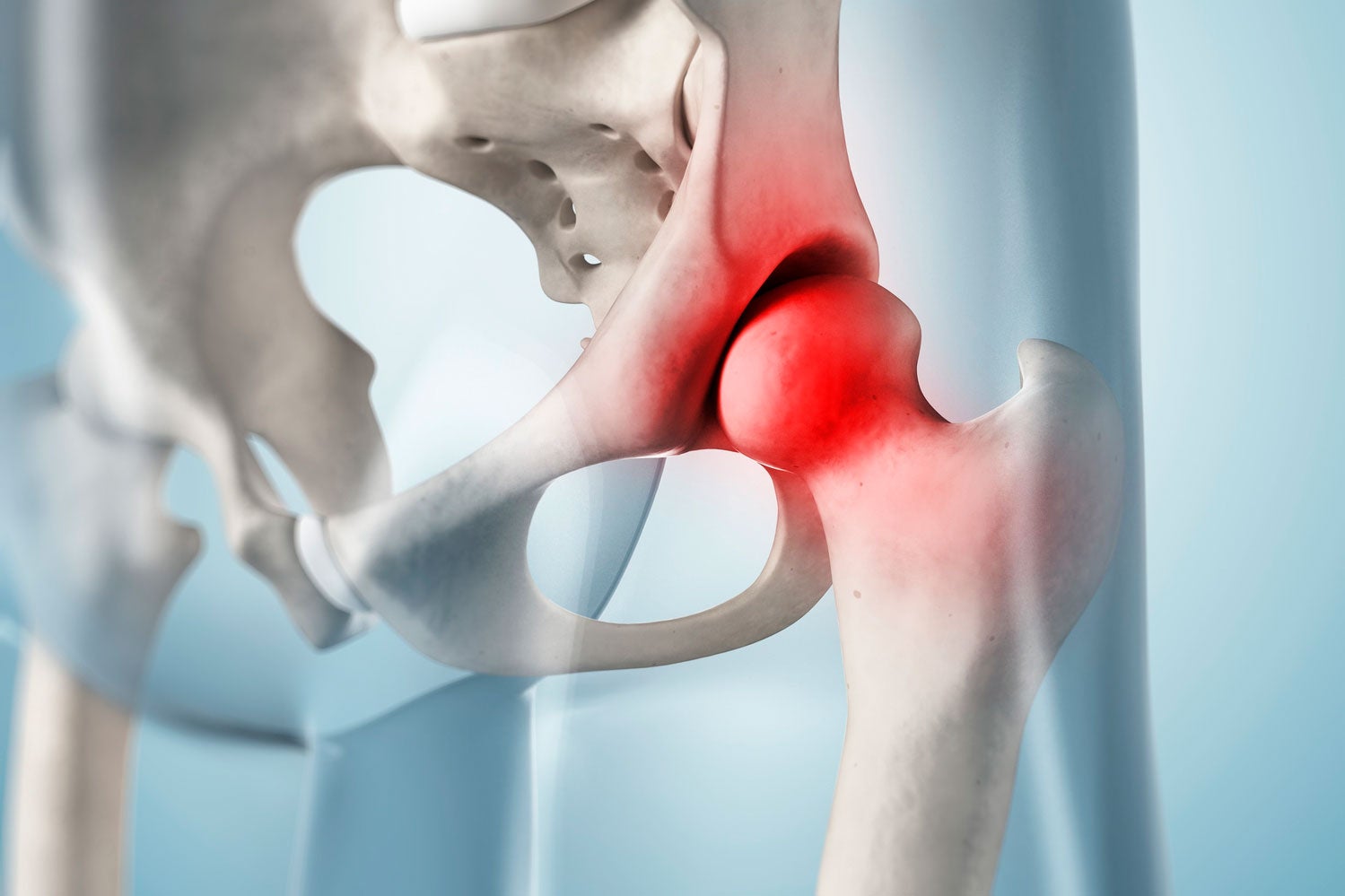Introduction
What is hip pain?
Hip pain includes any type of pain or discomfort in your inner or outer hip area. The hip is the joint where the thigh and the pelvis meet.
Hip pain can be described in many ways, such as tender, a dull ache, excruciatingly sharp pain, or a feeling of burning and tingling. Hip pain can be constant or it can be felt only when you make certain movements, such as squatting, lunging or turning. Hip pain can begin suddenly or gradually build over weeks or months.
Hip pain can be a symptom of injuries ranging from a slight muscle strain to a major bone fracture. Hip pain can also be a symptom of a disease, disorder or condition, such as arthritis, bursitis, cancer or osteoporosis. Hip pain can be caused by an injury or disease centralized in the hip, or it can be caused by a problem that begins in another area of your body, such as your back or knee. This type of pain is called referred hip pain.
Hip pain can occur in infants, children, adolescents, adults and seniors for reasons that can be specific to each age group. For example, hip pain is particularly common and significant in seniors because it can be a symptom of osteoarthritis of the hip or a hip fracture. Both conditions can have a significant impact on your quality of life.
Hip pain may be a symptom of a hip fracture, which is a medical emergency. Seek immediate medical care (call 911) if you, or someone you are with, have a visible deformity of the hip or severe hip pain, or are unable to walk normally after a fall or other injury.
Symptoms
What other symptoms might occur with hip pain?
Hip pain can occur in conjunction with other symptoms, which vary widely depending on the underlying injury, disease, disorder or condition. These symptoms can include:
- Back pain
- Knee or ankle pain
- Limping, shuffling, or difficulty walking
- Pain, tenderness, burning or tingling in the buttocks, legs, groin, back, pelvis or thigh
- Snapping, popping or clicking sensation in the hip
- Stiffness of the hip and limited range of motion
Symptoms that might indicate a serious condition
In some cases, hip pain may occur with other symptoms that might indicate a medical emergency. Seek immediate medical care (call 911) if you, or someone you are with, have fallen or other serious symptoms including:
- Deformity of the hip or thigh
- General weakness
- Inability to walk, put weight on your hip, or flex your hip
- One leg appears shorter than the other
- Outward rotation of a foot or leg
- Severe hip or pelvic pain
Causes
What causes hip pain?
Hip pain can be caused by an injury, disorder, disease or condition of the hip or another area of the body. Hip pain can develop in high-performing athletes who injure themselves performing vigorous exercise. Conversely, it can also be due to obesity and inactivity. Hip pain is particularly common and significant in seniors because it can be a symptom of osteoarthritis of the hip or a hip fracture.
Injuries that can cause hip pain
Hip pain can arise from the following injuries to the hip and other areas:
-
Bone or cartilage fragments in the joint space
-
Falling
-
Groin pull
-
Hip dislocation
-
Hip dysplasia
-
Hip fracture
-
Hip muscle strain
-
Pelvic fracture
-
Pinched nerves
-
Thigh muscle strain
Diseases and disorders that can cause hip pain
Hip pain can be caused by the following diseases and conditions:
-
Ankylosing spondylitis (inflammation of joints in the spine and pelvis)
-
Bone cancer
-
Bursitis (inflammation of a bursa sac that cushions a joint)
-
Cancer from another part of the body that has spread to the hip area (metastatic cancer)
-
Femoroacetabular impingement (FAI; hip joint damage caused by too much friction)
-
Legg-Calve-Perthes disease (also known as Perthes disease; a temporary loss of blood supply to the hip that occurs in children)
-
Osteoarthritis (type of arthritis characterized by degeneration of the cartilage and bone in the joints)
-
Osteonecrosis of the hip (loss of blood flow to the head of the femur, resulting in tissue death)
-
Osteoporosis (thinning and weakening of the bones)
-
Rheumatoid arthritis (chronic autoimmune disease characterized by joint inflammation)
-
Slipped capital femoral epiphysis (a shift of the hip bones that occurs in adolescents)
-
Tendinitis (inflammation of a tendon)
What are the potential complications of hip pain?
The complications of untreated or poorly controlled hip pain vary depending on the underlying injury, disease, disorder or condition. You can help minimize your risk of serious complications by following the treatment plan you and your health care professional design specifically for you. Complications of chronic hip pain or underlying causes of hip pain include:
-
Deterioration and deformity of the hip joint
-
Development of bone spurs
-
Difficulty walking and disability
-
Paralysis
-
Permanent joint immobility
-
Permanent joint instability
-
Permanent loss of sensation
-
Spread of cancer (metastasis)





